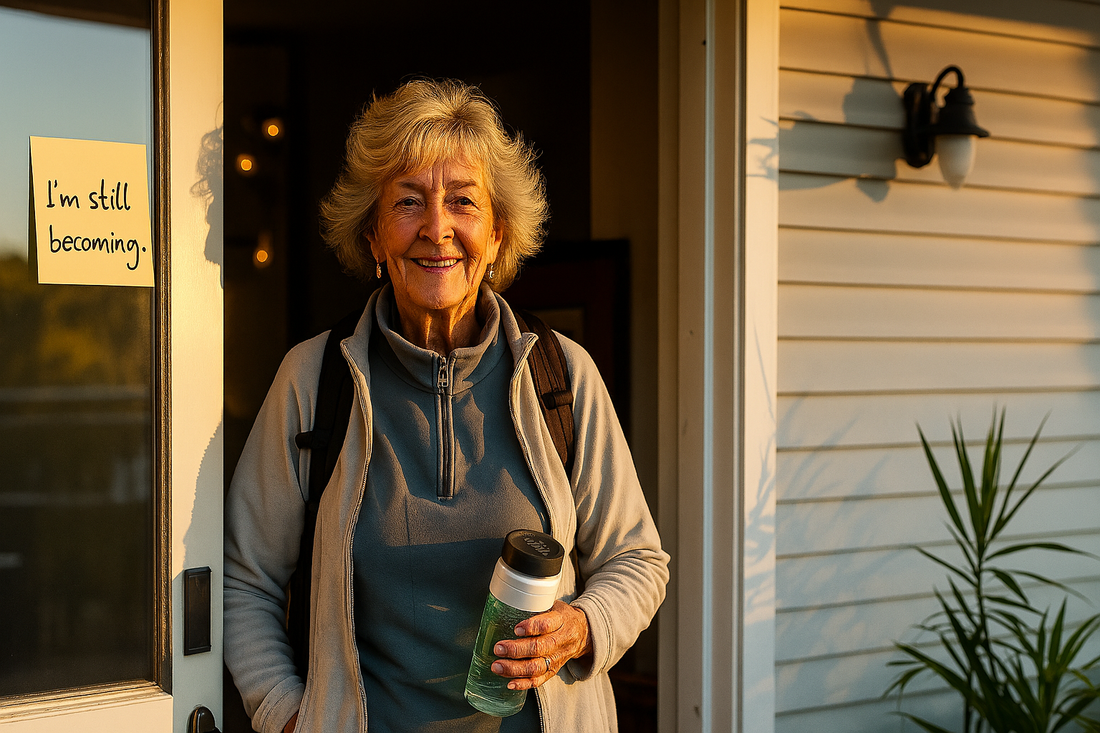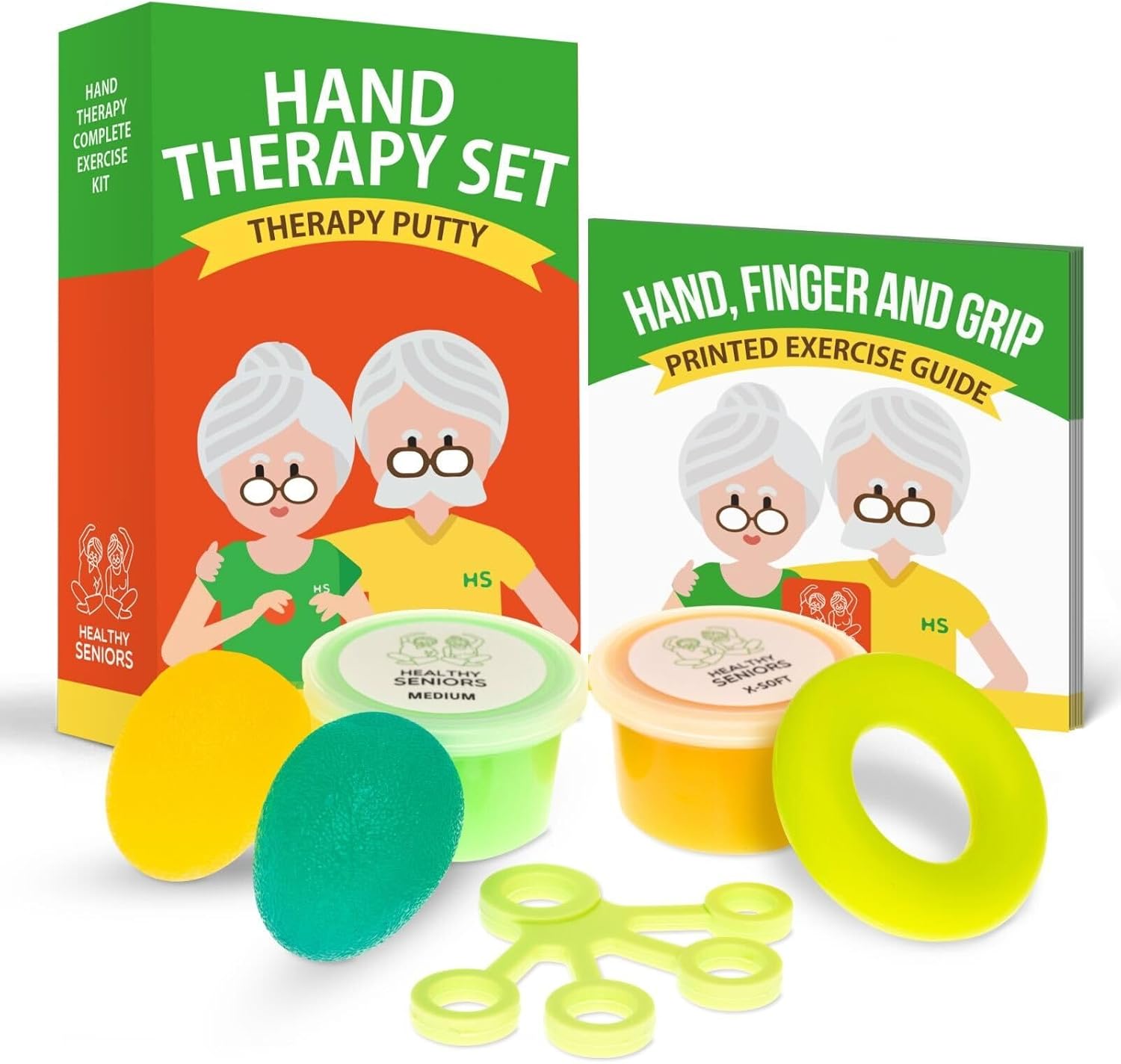
How Beliefs About Aging Can Affect Your Health and Longevity
Picture this: You’re bending down to tie your shoe and feel that familiar ache in your back. Without even thinking, you mutter, “Getting old, I guess.” It’s practically a reflex.
But what if that tiny sentence—the one that barely registers in your mind—is actually doing more harm than you realize?
The Background Noise of Aging Beliefs
So many of us carry quiet, background beliefs about aging. They’re not loud or dramatic. They’re more like a soft hum, so constant we don’t even notice them anymore.
- “I can’t do that anymore.”
- “I’m just not sharp like I used to be.”
- “That’s what happens when you get old.”
Here’s the kicker: believing those things—even a little—can speed up how fast you age. Not just in theory. In reality.
Your Beliefs Don’t Just Sit There—They Act
A study from Yale psychologist Dr. Becca Levy found something powerful: seniors with positive beliefs about aging lived 7.5 years longer than those with negative ones. That’s more than the life-extension benefit of quitting smoking or exercising regularly.
Why? Because beliefs shape behavior.
- When you think aging means decline, you might:
- Skip exercise because you think it won’t help
- Avoid new things for fear of looking “silly”
- Stay quiet at the doctor’s because memory slips are “just aging”
- Pull back from social situations or opportunities
You begin to live like someone winding down—even if your body and mind still have so much life left in them.
The Messages We Absorb—and How to Question Them
From sitcoms to birthday cards, the world loves to joke about aging like it’s some kind of tragedy. And after a while, those messages sink in:
- “It’s normal to hurt all the time after 70.”
- “I’ll never learn this tech stuff.”
- “My best years are behind me.”
But what if those aren’t facts? What if they’re just stories we’ve been told—and stories we’re allowed to rewrite?

Rewriting the Script
You don’t need to become a motivational speaker overnight. Just start by noticing the script playing in your head.
When you catch a limiting thought, pause and ask:
“Is this helping me grow or holding me back?”
Then flip it. It doesn’t need to be over-the-top. Just a bit more empowering, a bit more true.
Try these:
❌ “I’m too old for that.”
✅ “Why not me? I’ve got time and experience.”
❌ “I don’t bounce back like I used to.”
✅ “Healing takes time, and I know how to take care of myself.”
❌ “This tech stuff is beyond me.”
✅ “I’ve learned a lot in my life. I can learn this too.”
These tiny mindset shifts can open doors: to confidence, to movement, to connection—and yes, to joy.
Joan’s Turnaround
Take Joan, 72. For years, she avoided walking around her block. “What if I fall?” she’d say.
Then one day, she asked herself, “What if I fall? But… what if I don’t?”
She started small—just to the mailbox. Then to the corner. She bought walking shoes, found a podcast she loved, and kept going.
Today, she walks a mile most mornings.
“I still have arthritis,” Joan says. “But I stopped acting like I was fragile porcelain. That changed everything.”
A Funny Thing About Beliefs
Here’s the ironic part: the more you believe you can’t, the more your body agrees.
But when you start to believe you can? Your body often rises to meet you.
Think of mindset like a thermostat. You set the temperature. Your actions follow.
So set it warmer. Kinder. More hopeful.
Try This One Thing Today
1. Grab a sticky note or scrap of paper.
2. Write down one belief about aging that’s been weighing on you.
3. Flip it into something truer, gentler, more useful.
Example:
Original: “I’m too old to make new friends.”
Flip: “I have more time and more stories to share than ever.”
Stick it somewhere you’ll see it every day—on your mirror, fridge, or coffee pot. Let it be a daily reminder:
You are still becoming. You’re not “less than.”
You’re more seasoned. More capable. More you.
🧡 Caregiver Corner: Helping Rewire Gently
If you’re supporting an aging loved one, you can help shift old beliefs with just a few small steps:
- Mirror possibility, not limits. When they say “I can’t,” try, “Maybe not yet—what could we try?”
- Create small wins. Learning video calls or walking a few extra steps—celebrate it all.
- Speak the future. Ask “What would you like to do next month?” to keep growth alive.
Remember: the way you talk about aging becomes part of their inner voice, too.
Liked this post?
Subscribe to our free weekly newsletter at blog.wearehealthyseniors.com to get more stories, tools, and encouragement just like this—delivered straight to your inbox every week.
You’re not alone in this. And you’re definitely not done growing



